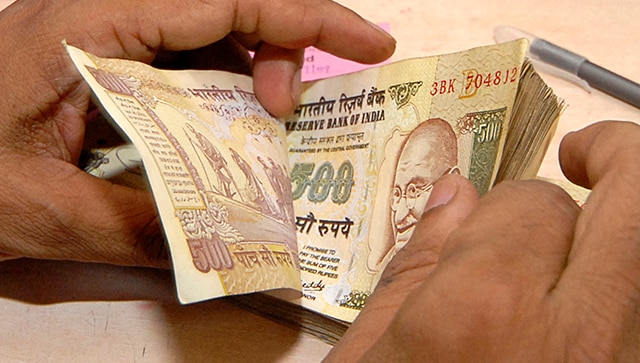Bank Sakhis are taking banking to rural India. Reuters
India aspires to grow into a $5 trillion economy, but only 27 per cent of women participate in the workforce currently, underscoring a substantial gender gap. Bridging this disparity by promoting financial inclusion and digital literacy among women, especially in remote geographies, is critical. This is where Bank Sakhis are spearheading a grassroots revolution.
Bank Sakhis: Transforming rural lives
The Bank Sakhi programme trains rural women – particularly from Self Help Groups (SHGs) – as banking correspondents or ‘BC Sakhis’ to serve marginalized communities. Launched in 2019 via the ‘One Gram Panchayat, One BC Sakhi’ mission, over 50,000 women from Self-Help Groups (SHGs) have been trained and certified as BC Sakhis until 2021. The plan is to deploy at least one BC Sakhi in rural areas by the end of the fiscal year 2023-24. This is a significant step towards financial inclusion and empowerment in these communities.
Related Articles

How women are unlocking financial inclusion in rural India

‘Significant milestone’: PM Modi hails achievement of Jan Dhan Yojana for crossing 50-crore mark
Catalysing financial and social inclusion
The role of Bank Sakhis transcends mere banking transactions. By familiarising previously uninformed women with financial services, they are enabling better economic participation and upward social mobility in rural India. From opening new accounts to facilitating payments, deposits, withdrawals and more, besides assisting people with financial literacy – Bank Sakhis are the beacons guiding rural India towards an inclusive, digitally integrated future.
Their intimate understanding of ground realities and localised presence foster trust-based relationships with rural folks. This helps in providing customised banking solutions tailored to address the unique socio-economic needs of India’s villages.
Driving last-mile financial access
Bank Sakhis are also pivotal in assisting the implementation of government schemes like PM Jan Dhan Yojana, PM Mudra Yojana and Sukanya Samriddhi Yojana, among others, that expand financial access and opportunities for the underserved.
These interventions have enabled rural women to open bank accounts for the first time, access credit lines for entrepreneurship, and reap the benefits of instruments like insurance and tailored savings accounts. Here, financial inclusion serves a multidimensional role – offering the vulnerable not just economic security but also emotional confidence and belief in one’s abilities to progress.
Addressing growth barriers
Bank Sakhis often faces challenges like weak digital infrastructure, cash handling risks and motivation issues while navigating difficult rural terrains. Addressing such impediments by strengthening localized support structures and increasing institutional assistance is vital to catalyse their progress.
Targeted capacity-building programmes equipping them with updated knowledge can further augment their efficiency. Platforms like Common Service Centre’s Banking Sakhi app that digitise operations also warrant impetus through customized rural interfaces.
Boosting women’s participation
Given the multifaceted value Bank Sakhis creates on the banking, financial services and social empowerment fronts, regulating firms to hire a certain percentage of women business correspondents can substantially increase their numbers while also promoting gender equality.
In that context, the government’s proposal mandating financial institutions to increase their share of women BCs to 30 per cent by 2027 (from less than 10 per cent presently) is a constructive step. Added focus on rural geographies through ‘One BC Sakhi Per Gram Panchayat’ also aims to have 1.25 lakh trained women BC Sakhis by 2024 – heralding a new era for India’s remote corners.
As pioneering torchbearers expanding last-mile financial access, Bank Sakhis are enabling progress rooted in sisterhood – assisting fellow marginalized women to leverage economic resources and knowledge to transform not just their own but entire rural communities’ destinies. Expanding this movement can establish India as a global leader, pioneering a multidimensional model of inclusive development that consciously leverages the potentials of women change-makers to uplift lives across the margins.
Concluding thoughts
As India strides forward on its economic journey, it’s essential that we consciously extend financial services to the far-flung areas often overlooked by the formal banking sector. The Bank Sakhis are leading this ground-breaking mission, igniting a revolution anchored in empathy, dignity, and sisterhood. Their brave endeavours to help vulnerable communities gain access to economic resources, knowledge, and security deserve immediate recognition and support.
These women are not just facilitating transactions; they’re reshaping the destinies of marginalized households, nurturing dreams, and fostering a sense of empowerment that’s crucial for India’s overall advancement. The triumph of the Bank Sakhis highlights the ripple effect of promoting participatory development and broadening financial inclusion, particularly among women. This approach lifts entire families and villages out of the cycle of poverty.
Their journey is a testament to the transformative power of investing in women as agents of change to drive sustainable growth. It also underscores why India must harness such inclusive grassroots solutions to position itself as a global leader in equitable development.
The author is chairman of BLS E-Services. Views expressed in the above piece are personal and solely that of the author. They do not necessarily reflect Firstpost’s views.
Read all the Latest News, Trending News, Cricket News, Bollywood News,
India News and Entertainment News here. Follow us on Facebook, Twitter and Instagram.







